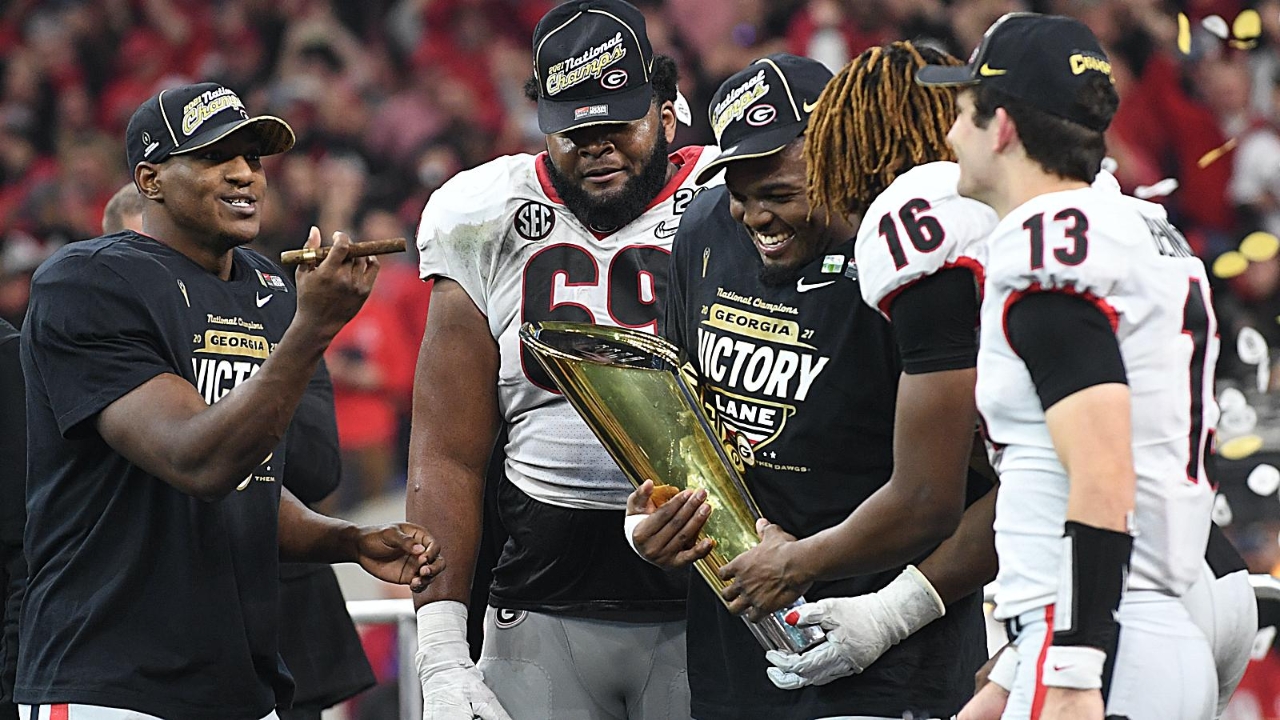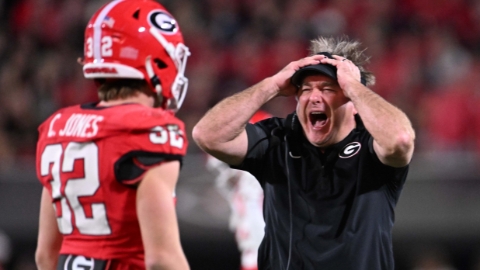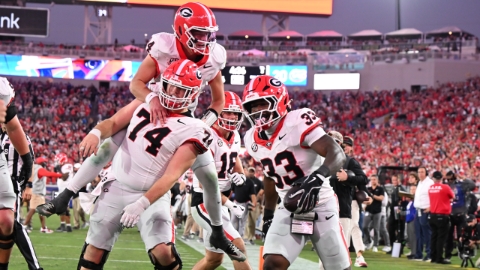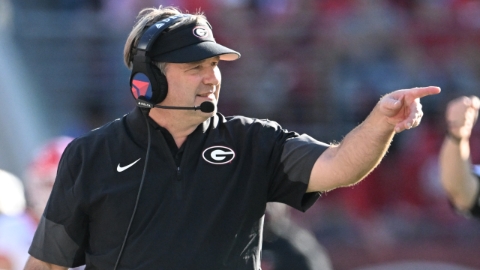
DON’T MISS OUT: Get our insider newsletter today!
ATHENS - Given upcoming conference expansion and re-shuffling, and other recent changes to the college football landscape, the fate of the current College Football Playoff (CFP) is again a hot topic. Yet, few in this debate suggest we forget the past, and focus on how college football should determine its champion in the future.
The best that can be said about the current CFP format and the Bowl Championship Series (BCS) before it, brings to mind an old joke about a funeral where no one stands up to speak on the deceased’s behalf. After repeated pleas for anything positive about the departed, an old man shouts: “His brother was worse!” To be sure, the existing playoff is an improvement over what had been much worse, and it has worked well for Georgia and the SEC, but it is still far from ideal.
Ironically, many that long for college football of yesteryear, also complain about things like “participation” trophies, but that is exactly how one could describe what the anointed college football champion received for most of college football’s history. For more than 100 years, teams did not win championships by beating contenders on the field. Instead, various people and organizations voted one or two of that year’s participants as the “best.” As great as college football has always been, how it chooses its champion has always been an anomaly – among virtually all sports leagues, professional or otherwise.
Buy Dawgstruction - today, and get our season preview included with your purchase.
Supplies are limited - CLICK HERE TO ORDER NOW
Again, try to take a fresh look at how the CFP should be conducted. If an alien arrived from outer space and used its superior intelligence to design a college football playoff, is there any chance it would look like the current CFP or the BCS? It would seem likely that our alien CFB czar would consider how a champion is crowned in the NFL. After all, it is a nearly identical game, being played by those who were playing the college game a few years earlier and is also the most popular sports league in America.
One strikingly different aspect of the NFL playoffs (and every other professional league, let alone nearly every other sports league at every level), is the percentage of participants that make the playoffs. Forty-three percent of NFL teams (14 of 32) make the playoffs each year. Across all major professional sports in the United States, 40% - 50% of the teams get a chance to play for a championship. In 2022 there will be 131 teams playing in the NCAA Division I Football Bowl Subdivision (FBS) – half in the five “power” conferences and half in the five “group of five” conferences. By any metric, there should be more playoff participation than just four teams. For example, a 12-team expanded CFP would still only amount to approximately 9% of all FBS teams or 18% of the teams, if only considering power five teams.
Likely clouded by “how it’s always been” thinking, any talk of playoff expansion causes many to decry that the playoff pool should be limited to only teams with the shortest odds to win a ring. This is such a strange concern that is not shared about any other competitive undertaking. In most leagues, in most years, at every level, there are only a handful of teams that are perceived to be good enough to win a championship, but many, many more get the chance to compete. And sometimes an NFL Wildcard team wins the Superbowl, a “Cinderella” team pulls off an upset in college basketball, or a long shot wins your town’s softball or bowling league trophy.
Yes, these are student athletes and there must be guardrails placed on the number of games played and their time demands, but the sport, particularly today, is the closest there is to the NFL game. And curiously, even the lower levels of college football (e.g., FCS and Division III) have expanded playoff brackets more akin to the NFL playoffs, than what the highest level of college football has ever had.
There is plenty of time in the current college football schedule – where teams are idle for nearly a month between conference championship games and the CFP semi-final – to add perhaps two additional rounds necessary for an expanded 12-team playoff. Obviously, the regular season schedule could be reduced to 11 games if thought to be necessary. In general, though, given current resources and today’s athletes, a few teams playing one or two additional games does not seem to be a grave concern.
Exactly how much the playoff should be expanded and the details surrounding a new format can certainly be debated. The main point here is simply that more teams (and fan bases) should have a chance to play for a championship. There is simply no good reason for the CFP to continue to depart so drastically from virtually every other competitive endeavor.
The other fundamental aspect of the NFL (and other professional league) playoffs that our alien czar would hopefully appreciate is that playoff teams are selected by predetermined criteria, rather than by humans debating about the “eye test.” Granted, being one of the 13-member playoff selection committee sounds like a great gig, and one this writer would gladly accept, but how much sense does it make? Week after week, the committee waxes poetically about their “process,” which is subject to change the following week. And, in the end, a third grader looking at the AP Poll and picking the top four undefeated or one loss teams would have picked the same teams that the playoff committee chose, just about every year.
Of course, in the rare instance when there is a debate over which team should be the last team out, that’s when the committee of humans is at its worst. Georgia fans remember in 2018 when the learned committee – toggling between the amorphous concepts of which four teams were the “best” and which four teams were the “most deserving” – left out Georgia despite it proving that it was one of the only teams capable of competing with top-ranked Alabama.
Despite its flaws, the way the (two) teams were selected to play for a BCS title – ranking teams using a combination of computer and traditional ranking services – was far better than the current committee approach. Like the NFL and other professional sports leagues, why not remove humans as much as possible from the playoff selection process? Given the large number of FBS teams, some combination of automatic bids and a predetermined model (maybe combining polls and computer analytics) for the remaining at-large spots, would seem to make the most sense.
What makes sports so compelling – especially a game like college football – is that head-to-head competition, not the “eye test,” objectively determines which team is better that day. Why not leave subjective whims where they belong, like when The Academy of Motion Picture Arts and Sciences selects a “Best Picture,” and let college football competitors battle each other on the field to prove who is the best each season.




